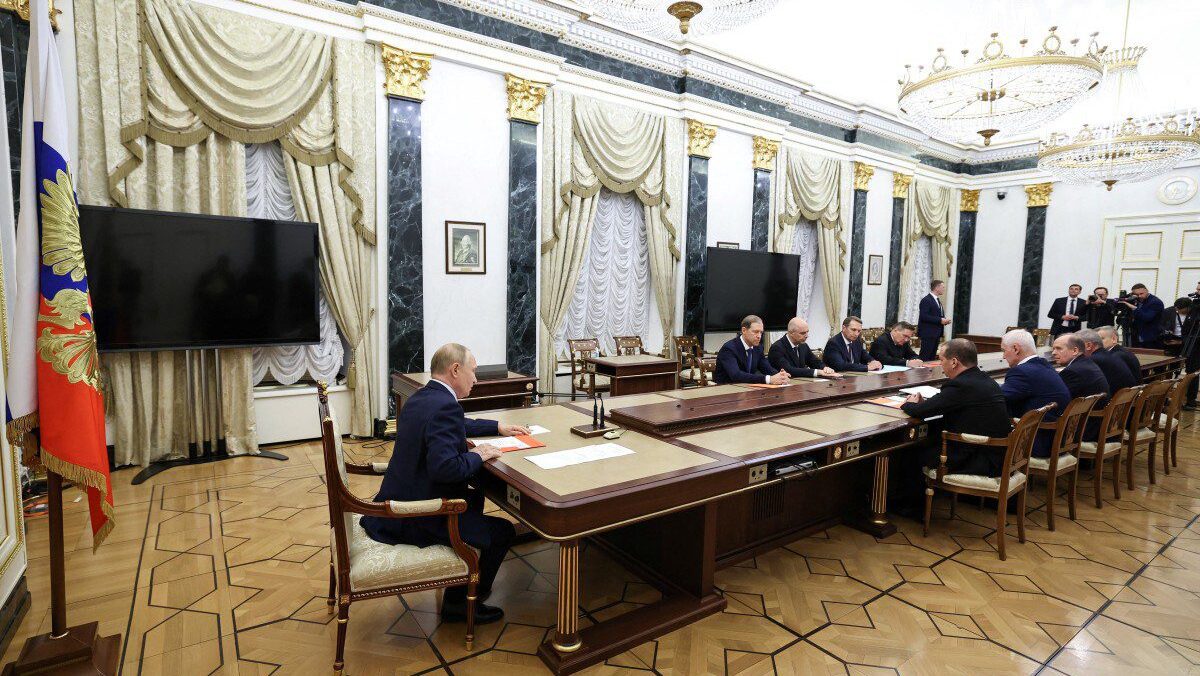
President Putin chairing Russia’s Security Council, September 25, 2024.
Photo: Alexander Kazakov / POOL / AFP
Russian President Vladimir Putin has announced a revision to Moscow’s nuclear doctrine, significantly reducing the threshold required for deploying nukes. Now even conventional attacks from non-nuclear nations that are backed by nuclear powers will be regarded as joint attacks and would warrant a nuclear response.
The revision is clearly meant to deter Western nations, specifically the nuclear powers the U.S., the UK, and France, from allowing Ukraine to use their long-range ballistic missiles against targets inside Russia.
President Zelensky has been begging Western allies to lift their restrictions on cruise missiles so Kyiv could target Russian weapons depots and other military targets. Washington and London were reportedly considering doing so earlier this month but backed down at the very last moment in fear of escalation.
As pressure from Kyiv continues, the stakes are now even higher should Washington and London decide to grant Zelensky his wish.
According to the new Russian nuclear doctrine, Kyiv firing Western cruise missiles or other conventional weapons en masse into Russia would be regarded as a joint attack by nuclear powers on the country, and authorize the Kremlin to act accordingly, using its nuclear arsenal at will.
Speaking at a meeting of Russia’s Security Council that considered changes in the doctrine, Putin announced that a revised version of the document states that an attack against his country by a non-nuclear power (like Ukraine) with the “participation or support of a nuclear power” (such as the U.S., the UK, or France) will be seen as their “joint attack on the Russian Federation.”
“Conditions for Russia’s move to use nuclear weapons are clearly stated” in the revisions, Putin said. “We will consider such a possibility when we receive reliable information about a massive launch of air and space attack assets and them crossing our state border,” he added, citing “strategic and tactical aircraft, cruise missiles, drones, hypersonic and other flying vehicles.”
Until now, Russia’s nuclear doctrine only allowed the use of nuclear weaponry in response to nuclear attacks or attacks with other weapons of mass destruction, including conventional weapons, only when the “very existence” of the state was in jeopardy.
But with the discussion heating up about Western cruise missiles capable of accurately hitting their targets hundreds of kilometers from the Russian borders, commentators inside Russia have been pushing for revising the nuclear doctrine as a deterrent for months.
Responding to Putin’s remarks, Zelensky’s chief of staff Andriy Yermak said Russia “no longer has anything other than nuclear blackmail to intimidate the world,” pushing for the West to call Putin’s bluff.
It’s obvious that Russia wouldn’t want to open the Pandora’s box of nuclear war either, but even Western experts signaled caution about the next steps.
“Regardless of whether you think this is a bluff or not, it’s never good when a major nuclear power loosens the conditions for nuclear use in its declaratory policy,” said Samuel Charap, senior political scientist at American research organization RAND.
Regardless of whether you think this is a bluff or not, it’s never good when a major nuclear power loosens the conditions for nuclear use in its declaratory policy https://t.co/IXf3hLTD71
— Samuel Charap (@scharap) September 25, 2024
